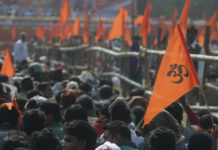The Muslim Council of Britain (MCB) has issued a call for greater intra-faith unity, particularly after a weekend of tensions in the Middle East following the execution of Sheikh Nimr al-Nimr, a Shia scholar, and 46 Sunnis in Saudi Arabia.
The MCB – the UK’s largest Muslim organisation – has consistently called for Muslim unity over the past few years as tensions between Islamic sects have spiralled because of the conflicts in the Middle East.
“We are deeply concerned that this latest issue will serve to deepen sectarian tensions, particularly here in the United Kingdom,” the MCB statement said.
“We must try harder, as brothers and sisters in faith, to work together and deepen unity between our Muslim communities. And we call on Saudi Arabia and Iran to redouble their efforts in pursuing peace in the region.
“We regret the execution of Sheikh Nimr and other Saudis over the weekend. It underscores again the human rights deficit throughout the Muslim world. Whether it is in Syria, Iran, Egypt, Pakistan, Bangladesh or Saudi Arabia, we urge all Muslim countries to strive harder in abiding by universal human rights.“
Saudi Arabia executed Ayatollah Nimr al-Nimr on Saturday along with 46 Sunnis it accused of terrorism.
The kingdom’s Interior Ministry said those executed had been found guilty of being in “terrorism” and adopting a “takfiri” ideology.
Subscribe to our newsletter and stay updated on the latest news and updates from around the Muslim world!
Saudi media said that the “executed Shia terrorist” was part of Iran and Hezbollah and supported a network that blew up the Khobar Towers in 1996 which killed 20 US soldiers. It added that the “Sunnis terrorists” benefited from a network that planned and executed an attack on the Saudi National Guard building in Riyadh in 1995.
Ayatollah Nimr, a critic of the Riyadh regime, was shot by Saudi police and arrested in 2012 in the Qatif region of Shia-dominated Eastern Province, which was the scene of anti-regime demonstrations at the time.
He was charged with instigating unrest and undermining the kingdom’s security, making anti-government speeches and defending political prisoners. He had rejected all the charges as baseless.
In 2014, a Saudi court sentenced Sheikh Nimr to death, provoking widespread global condemnations. The sentence was upheld last March by the appeal court of Saudi Arabia.
Amnesty International also criticized the process of Sheikh Nimr’s trial and said it views the charges against the cleric as his right to free speech.
Following the execution, Saudi Arabia, Sudan, Bahrain and Kuwait cut off tries with Iran after Saudi diplomatic buildings in Iran were attacked.






















